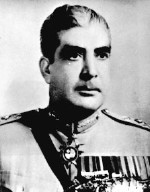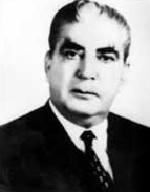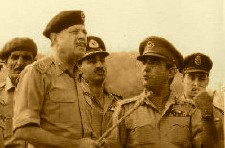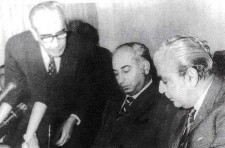Adil Najam
This post continues our series on the events of 1971. The previous three parts of the series can be read here, here, here and here.
It has always surprised me that in all our discussions of the traumas of 1971 the name of Gen. Agha Muhammad Yahya Khan much less frequently than it perhaps should given his role. He presided over the beginnings of a military campaign against what were (then) his own people, what escalated into a full-fledged civil war, eventually an international war, and finally the breakup of the country.





Indeed the complexities were great, there were many other individuals involved, and the roots of all that happened went much further and deeper than just the events of 1971. Yet, Gen. Yahya Khan was in command – of military as well as civilian operations – in those moments of ignominy. But still, for some reason his mentions tend to be fleeting. Although never flattering, there is a sense that we want to move away from the topic of Gen. Yahya Khan as soon as we can; possibly to get to that perennial favorite topic: Zulfiqar Ali Bhutto.
Read Full Post
Adil Najam
 I arrived back in Pakistan early on Friday and, as always happens, have been enjoying good food and frantic conversation ever since. The food I continue to enjoy. The conversations are increasingly disturbing. The palpable disenchatment, but even more than that a sense of despondency – the “we can do nothing” feeling – gets under your skin. And very quickly.
I arrived back in Pakistan early on Friday and, as always happens, have been enjoying good food and frantic conversation ever since. The food I continue to enjoy. The conversations are increasingly disturbing. The palpable disenchatment, but even more than that a sense of despondency – the “we can do nothing” feeling – gets under your skin. And very quickly.
So, I did what I have done ever since I first stumbled upon this audio rendition back last August. I replayed and heard these 85 seconds of Zakintosh reciting his father’s wonderful poem.
[Audio:http://www.kidvai.com/windmills/Media/Latee fah.mp3]
Read Full Post
Mohammad Ayaz Abdal
Pakistan can proudly boost of having one of the oldest and the most organized caste systems in the world. This system always drew interest from the ancients to the recent sociologists.

Plutarch and Homer studied it and made it a part of their ancient doctrine. Chankiya and Machiavelli added its necessary components in their celebrated works. This system has developed over centuries. However much fine-tuning has been done to it in the last 63 years making it the envy of the nations. Please note that for this article, all terminologies have been taken from the long lost book Castium Ajeebium Ghareebium Pakistnium by Plutarch. This book was supposed to be lost and was found last month on a thela (book cart) of Khori Garden.
Read Full Post































































